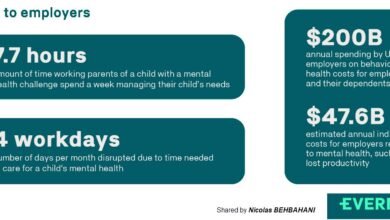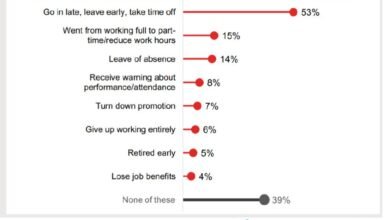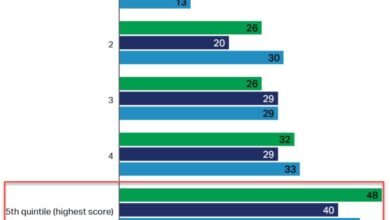
By | Rajiv Jayaraman | Founder-CEO, KNOLSKAPE ; Author: Clearing the Digital BLUR, TEDx speaker, Chief People Officer, Talent Transformation
In today’s VUCA context, it is becoming increasingly important to be able to anticipate changes ahead of time and develop a response with great agility. Honing our prediction skills, then, can become an incredible strength and a source of great competitive advantage.
Let’s do a quick quiz. Can you identify the leaders who made the following predictions?
- The phonograph is of no commercial value
- I think there is a world market for about 5 computers
- 640K ought to be enough for anybody
- There is no reason for any individual to have a computer in their homes
- Computers in the future may not weigh more than 1.5 tons
Before I give you the answers, let me assure you that these are people of incredible repute who were at the top of their game when they made these predictions. We now know that these predictions are way off the mark. Some of them are ludicrously off. If this can happen to the best amongst us, is there any respite for the rest of us? Let’s find out.
Why are we so outrageously bad at forecasting the future and what can we do about it?
One of Yogi Berra’s famous quotes goes like this: “It is tough to make predictions, especially about the future”. Let’s face it, most of us are outrageously bad at forecasting the future. Let’s understand why and what can we do about it.
- Over-confidence effect
According to Philip Tetlock, a professor at the University of Pennsylvania and the author of “Superforecasting: The Art and Science of Prediction,” experts are only about as effective at predicting the future as dart-throwing chimpanzees.
This can be attributed to the overconfidence effect. Wikipedia summarizes this aptly. “The overconfidence effect is a well-established bias in which a person’s subjective confidence in his or her judgments is reliably greater than the objective accuracy of those judgments, especially when confidence is relatively high.”
In a way, this can be interpreted as, the more confident you are about a particular topic, the more prone to prediction errors you can get making you as vulnerable as a novice if not more.
What can we do about this?
Start recording your predictions, make them public, gather data post the event and do careful analysis of your win / loss ratio. Calibrate yourself accordingly.
2. Under-estimating exponential impact
Human minds are not really well wired for grasping exponential impacts. There’s a famous legend about the inventor of the game of chess. When he showed the game to his emperor, the emperor was so thrilled by the new invention, that he offered to grant any wish the inventor had.
The inventor said, “Give me one grain of rice for the first square of the chessboard, two grains for the next square, four for the next, eight for the next and so on for all 64 squares, with each square having double the number of grains as the square before.“
The emperor agreed to this request readily. It didn’t seem like much after all. After some time, his minister informed him that there is not enough rice in the entire kingdom to satisfy the inventor’s request. With each square in the chess board, the number of grains of rice was growing exponentially.
In the business and technology world, we consistently get caught off-guard by the sudden growth or development of exponential systems.
What can we do about this?
86% of the predictions made by Ray Kurzweil have supposed to have come true. Ray is what Tetlock would call a ‘super predictor’. BigThink says “In fact, of the 147 predictions that Kurzweil has made since the 1990’s, fully 115 of them have turned out to be correct, and another 12 have turned out to be “essentially correct” (off by a year or two), giving his predictions a stunning 86% accuracy rate.”
The reason he gets his predictions right is that he has understood the underlying laws that govern the systems that he is making a prediction on.
The key takeaway is that it is important for us to be systems thinkers to get better at making predictions.
3. Lack of accountability / feedback loops
Better forecasting doesn’t just entail making better predictions but also having the diligence to gather data afterward and being honest to oneself about which predictions were right and wrong. Weather men and stock traders typically have a tight feedback loop that helps them figure out if their prediction was sound or not. But there are many other systems where the feedback loop is not straight forward. Sometimes the timelines for the prediction are long drawn out or the prediction itself is ill-defined.
What can we do about this?
Gather data post the event, take accountability for the right / wrong predictions. Attach a material consequence to getting predictions wrong. This is bound to make us grounded.
In closing, I’d like to add that our learning systems should equip us to think clearly about the future. That’s where we’ll all end up after all. Simulations and scenario planning exercises can help us appreciate, understand and apply the power of probabilities.
Here are the answers to the questions above:
- Thomas Edison
- Tom Watson (IBM)
- Bill Gates (MSFT)
- Ken Olsen (DEC)
- Popular Mechanics magazine, 1949
Republished with permission and originally published at Rajiv Jayaraman’s LinkedIn









